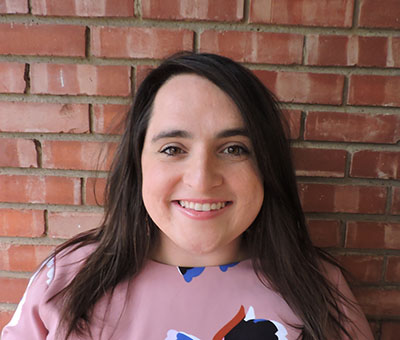
So, why do some meals make us feel sleepy? And what can we do to avoid that feeling of exhaustion during the middle of the day?
You may be interested to know there are scientific reasons behind our body’s desire to fall asleep after eating.
If you are concerned that you sometimes feel tired after eating, here are some of the most common causes and what you can do to avoid that fatigue.
Nutrition
Nutrition has a huge role to play in how our bodies feel. There is a strong link between nutrition and sleep. Here are some of the ways your diet may not only be impacting your health but directly causing that tired sensation after a meal.
Sugar
Some assume sugar provides a natural energy boost, but the opposite is true. To understand what sugar does to energy levels, it’s necessary to know about a neurotransmitter called orexin.
Orexin has several roles, but it is most essential for keeping us in a state of wakefulness. When we eat high quantities of sugar, the body does not produce the right levels of orexin.
If you want an energy boost after eating, reduce your sugar and carbohydrate intake and increase the amount of good quality protein in your diet (such as unprocessed red meat, chicken, or fish).
Simple Carbohydrates
A diet high in simple sugars and simple carbohydrates triggers blood sugar in the body to rise rapidly and then crash. It is that sudden crash in blood sugar levels that causes many people to experience tiredness or lethargy.
By removing sugar and simple carbohydrates, increasing protein, and adding complex carbohydrates into your diet, you can counter that blood sugar crash by keeping your blood sugar levels steady during and after eating.
Good quality sources of complex carbohydrates include barley, chickpeas, sweet potato, quinoa, and steel-cut oats.
Foods High in Tryptophan
Some foods are naturally high in an amino acid called tryptophan. This amino acid helps the body produce serotonin, a neurotransmitter that regulates our moods and helps us to feel relaxed.
If you consume a meal high in tryptophan, your body may experience the natural feel-good chemicals from the boost in serotonin. This may also make you feel sleepy.
If you need to boost your energy after eating a meal, it’s useful to know which foods are high in tryptophan. Here is a list of the most well-known foods with tryptophan:
- Milk
- Cheese
- Edamame beans
- Turkey
- Chicken
- Tuna
- Tofu
- Lean beef
- Lean pork
- Salmon
Diabetes
Type 1 and type 2 diabetes have been linked with a condition called Diabetes Fatigue Syndrome. This is where a patient will experience unusual levels of tiredness due to high or low blood sugar levels in the body.
Type 1 Diabetes
If you are type 1 diabetic, fatigue following a meal can be caused by either hypoglycemia (low blood sugar) or hyperglycemia (high blood sugar).
Hypoglycemia is often experienced with more than one symptom. Symptoms may include shakiness, dizziness, or tingling lips. If you suffer from type 1 diabetes and experience tiredness and fatigue after eating, check your blood sugar levels.
Hyperglycemia, or high blood sugar, can also be accompanied by feelings of fatigue and tiredness.
If you are type 1 diabetic and experience high blood sugar and/or fatigue after eating, reduce your carbohydrate intake. Consult your doctor for advice on your diet and your insulin prescription.
Prediabetic or Type 2 Diabetes
According to the American Diabetes Association, around 21% of Americans with diabetes are undiagnosed. However, tiredness after eating is a common symptom of type 2 diabetes and prediabetes.
Managing type 2 diabetes symptoms through diet is the first step to reducing episodes of tiredness after eating. Primarily, a change of diet that reduces sugar, processed food, and simple carbohydrates is needed.
Blood Circulation
If you often feel tired after eating, you might simply be experiencing the effects of your digestive system getting to work.
After we have eaten, our body releases something called enterogastrone hormones.
These hormones help our digestion. One of the changes that occur in the body at this point is the blood circulation to our digestive system. This helps us to properly digest the food we have just eaten.
The reason this can cause tiredness is that your body reduces blood circulation in other areas of the body to better focus on digestion. This reduction is what can leave us feeling tired.
To counteract this, try increasing the amount of fiber in your diet. Fiber naturally aids the digestive process.
Sleep Apnea
Fatigue can be a direct result of a sleep problem that you may or may not be aware of.
In the United States, around 22 million adults suffer from a condition called sleep apnea.
Sleep apnea causes your breathing to start and stop during your sleep cycles. If you suffer from the condition but aren’t undergoing treatment, unsteady breathing may prevent you from a great night’s sleep without you even knowing it.
If you feel tired at other points of the day, even after achieving the recommended seven or eight hours of sleep a night, it is worth getting tested for sleep apnea.
The Circadian Rhythm
If you feel tired after eating at lunchtime, the problem could be in your circadian cycle. This is the natural 24-hour rhythm of our body that causes us to feel alert or sleepy.
Biologically, most humans have a natural drop in energy during the early afternoon. This may coincide with meal times, but not always, as food has very little to do with your circadian rhythm.
Our circadian rhythm is largely governed by environmental factors. Light is the most significant of these, and our bodies start to produce melatonin when natural light fades.
However, body temperature also plays a part. In the afternoons, our body temperatures drop slightly, and this temperature drop increases the production of melatonin and makes us feel sleepy.
Feeling Tired After Eating Could Be Your Wake Up Call
Though there are many different causes for fatigue after eating, it is a good opportunity to look at your lifestyle and your health and run a quick health audit. Could you make any improvements?
Always start with a look at your diet and whether what you are consuming is making you feel tired after eating. However, don’t ignore the fact that sleepiness may be a symptom of an underlying health issue.
Finally, don’t forget to look at ways you can improve your sleep. Take a look at these sleep tips for some helpful pointers.




